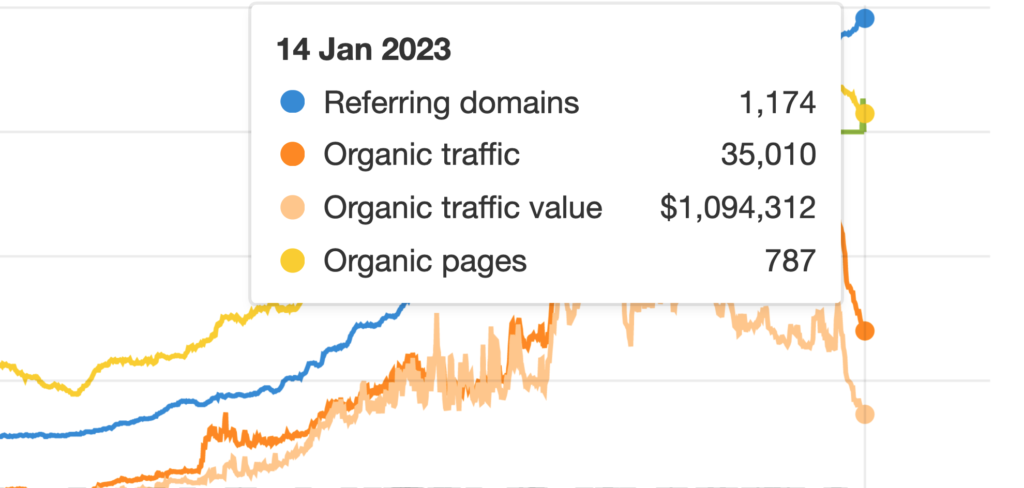CJP Declines to Discipline Orange County Judge as No Brady Violation Found

On December 6, 2022, the California judicial watchdog declined to disciple Orange County Superior Court judge by dismissing judicial proceedings. Let’s explore why there was an investigation against the Orange County Superior Court judge with Circle of Legal Trust.
Commission Drops Misconduct Charges Against Orange County Judge
Commission prosecutors decided to pursue disciplinary charges against Judge Michael Murray in January 2022 for a previous case Murray prosecuted involving Cole Wilkins, charged with first-degree murder.
Wilkins stole a stove from a construction site and loaded it up in his truck. While driving on the freeway, the stove fell on the road, causing an off-duty sheriff’s deputy to swerve their vehicle and crash into a cement truck, leading to his death.
Murray prosecuted Wilkins in 2008 for murder. However, the case did not end there, as Wilkin’s attorney pushed for post-trial proceedings as they believed that the California Highway Patrol altered the investigation report.
In 2013, the California Supreme Court issued an opinion finding that the trial court made an error judgment by failing to let the jury know of the escape rule. It also reversed the case and requested a new trial.
Initial investigations carried out by the California Highway Patrol revealed that the off-duty deputy was speeding on the freeway before the incident occurred. During post-trial proceedings in the appellate court, Wilkin’s attorney successfully argued that the California Highway Patrol (CHP) changed their initial report of the deputy speeding and pinning the blame on Wilkin. The court reduced Wilkins’ charges to involuntary manslaughter and ordered the release of Cole from prison.
Five years after taking office as the judge, the Commission on Judicial Performance prosecutors decided to pursue charges alleging that Murray knew about the exculpatory evidence that the CHP changed their report. Yet, he did not consider it before giving his initial decision on the Wilkins case.
The commission alleged that Murray failed to inquire about potential exculpatory evidence (the changed police report) and failed to conduct a possible Internal Affairs investigation.
Commission Conducts Hearing into Alleged Misconduct by Judge Murray as Deputy District Attorney
The three-judge panel of special masters appointed by the California Supreme Court conducted a seven-day hearing against Judge Michael Murray for allegations made by the prosecutors at the Commission on Judicial Performance.
They concluded that the prosecution members in the Wilkins case knew or should’ve known about the exculpatory evidence, but the prosecutors failed to provide clear and convincing evidence of such misconduct and that the judge violated any judicial canons.
Following the three-judge panel’s findings on prosecutorial misconduct against Murray, the Commission on Judicial Performance agreed with the findings, stating that Murray’s action as the deputy district attorney did not constitute committed prosecutorial misconduct.
Murray’s attorney, Edith Matthai, released a statement stating that Murray was battling against these legal charges for so long, and finally, he received justice in the form of a decision that dropped all disciplinary charges against him.
CJP Declines to Discipline Orange County Judge but Has Right to Discipline Judges
Although the Commission on Judicial Performance agreed with the findings of the three-judge bench report, it did not agree with a statement made by the panel.
The panel stated that the commission did not have the legal authority to bar a prosecutor for a Brady violation, and sanctioning is only possible through a criminal proceeding for that violation.
The commission disagreed with that comment and stated it is the commission’s mandate to uphold public perception of the judicial system and maintain rigorous standards of judicial conduct.
In certain circumstances, the commission can discipline judges for Brady violations while serving as a prosecutor. Following their comments, they dismissed the case stating that Judge Murray did not commit such misconduct.
Past Removals by Commission to Uphold Integrity of Judicial Office
In the past, the Commission on Judicial Performance removed several justices from office upon review in California, including the following:
- Justice Jeffrey W. Johnson, Justice of the California Court of Appeal, Second Appellate District
- Judge Richard W. Stanford, JR, Judge of the Orange County Superior Court
- Judge Jose A. Velasquez, Judge of the Monterey County Superior Court
- Judge Michael E. Platt, San Joaquin County Superior Court Judge, and many more.
The commission doesn’t always remove the judges following investigations, as seen with Judge Murray’s case, Justice J. Anthony Kline of the Court of Appeal, First Appellate District, and many others.
Brady v. Maryland Gives Rise to the Brady Rule
The Brady v. Maryland landmark Supreme Court case established the Brady rule, where the prosecution must hand over all exculpatory evidence that exonerates the defendant to the defense.
In 1958, John Leo Brady and his companion Charles Boblit murdered William Brooks. The court sentenced both men to death, but Brady decided to challenge his conviction.
Brady agreed to his involvement in the murder, but he argued that he didn’t murder Brooks and that Boblit committed the heinous act. Both men faced separate trials, and the prosecution withheld Boblit’s statement that he was behind the murder. Brady’s lawyer appealed and requested to receive a trial at the Supreme Court.
Supreme Court ruled that withholding evidence that exonerates the defendant is against the Due Process Clause of the Fourteenth Amendment. William O. Douglas, the associate justice of the Supreme Court, stated that society wins when there are fair criminal trials and sent the case back to the Maryland Court of Appeals to provide a new sentencing hearing.
In the new hearing, the court reduced his death sentence to life imprisonment, but eventually, Brady received parole. The Brady rule is essential in the criminal justice system as there are police officers that lie or manipulate records (like in the case of Cole Wilkins).
The rule requires prosecutors to notify the defense about the history of the police officers involved in a case of previous lying in an official capacity. Prosecutors have to maintain a Brady list, a list of police officers known to lie and are not credible witnesses, as statements from these officers can undermine the prosecution’s integrity.
The Brady rule extends not only to police officers but also to evidence from non-credible witnesses who make false statements. In the United States v. Bagley case, the Supreme Court reduced the reach of Brady to “reasonable probability,” meaning there is a reasonable probability that if the defense received the evidence, it could acquit the defendant.
In cases involving the Brady rule, the defendant has the burden to prove that there is a reasonable probability that if they received the undisclosed evidence, the defendant would more likely than not receive a different verdict.

